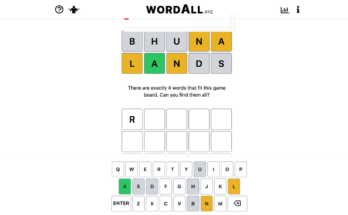
As the global pandemic batters economies and consigns billions of people around the world to isolation in their homes, our collective mental health is understandably taking a nosedive. With many people lacking their usual outlets for initiating contact with family, friends, and co-workers, depression has soared globally.
But maybe you can do something about it—and without leaving the house. A new study from Oxford University indicates that mental wellbeing can be bolstered by one of the most sedentary, indoor activities of them all: playing video games. According to the study, it seems vegetating on the couch in defiance of your spouse or parent’s familiar admonitions can have a positive effect on your psyche, provided you’re playing the right games.
The study is the first of its kind
The study charts new territory for video game research. By analyzing patterns of player behavior in two games, Plants vs Zombies: Battle for Neighborville and Animal Crossing: New Horizons, researchers tailored a survey to the specific game times of 3,274 players. (Previous studies relied upon players’ self-reported game times, which leant itself to more dubious conclusions.)
The study sought to measure the link between objective game time and an individual’s mental wellbeing, citing several factors relating to player experience, such as “feelings of autonomy, relatedness, competence, enjoyment and feeling pressured to play.”
According to Professor Andrew Przybylski, Director of Research at the Oxford Internet Institute and lead author of the study, the findings defy much of the stereotypical framing of video games as having detrimental effect on mood. These learnings could prove instructive for policymakers, especially as internet addiction and screen time become more pervasive issues across society.
“Our findings show video games aren’t necessarily bad for your health; there are other psychological factors which have a significant effect on a persons’ well-being. In fact, play can be an activity that relates positively to people’s mental health – and regulating video games could withhold those benefits from players.”
G/O Media may get a commission
More key findings
It’s important to note that both games used in the study have a sunnier premise than many violent or apocalyptic games on the market. The happiness of the players surveyed might stem from Animal Crossing’s more congenial mood, and the fact that in order to play, players must interact with each other to perform mutually beneficial tasks.
“I don’t think people plough a bunch of time into games with a social aspect unless they’re happy about it,” Przybylski told the BBC, likening the effect of both games to a “digital water cooler.”
The study went on to conclude:
- Actual amount of time spent playing was a small but significant positive factor in people’s wellbeing
- A player’s subjective experiences during play might be a bigger factor for wellbeing than mere play time.
- Players experiencing genuine enjoyment from the games experience more positive well-being
- Findings align with past research suggesting people whose psychological needs weren’t being met in the ‘real world’ might report negative well-being from play.
Data can help inform public health policy
Still, the study doesn’t entirely refute four decades worth of previous video game research, much of which has observed negative links between various games and the mental health of players across age groups. The study does offer, according to Przybylski, a chance for researchers to better impart accurate data to public health authorities about video games that was previously unavailable due to technological constraints.
“You have really respected, important bodies, like the World Health Organization and the NHS, allocating attention and resources to something that there’s literally no good data on,” he told The Guardian.
As governments across the west consider to impose new lockdown measures, its serves a bit of reassurance knowing that cheery games like Animal Crossing might help people weather the solitude better than we previously thought.



